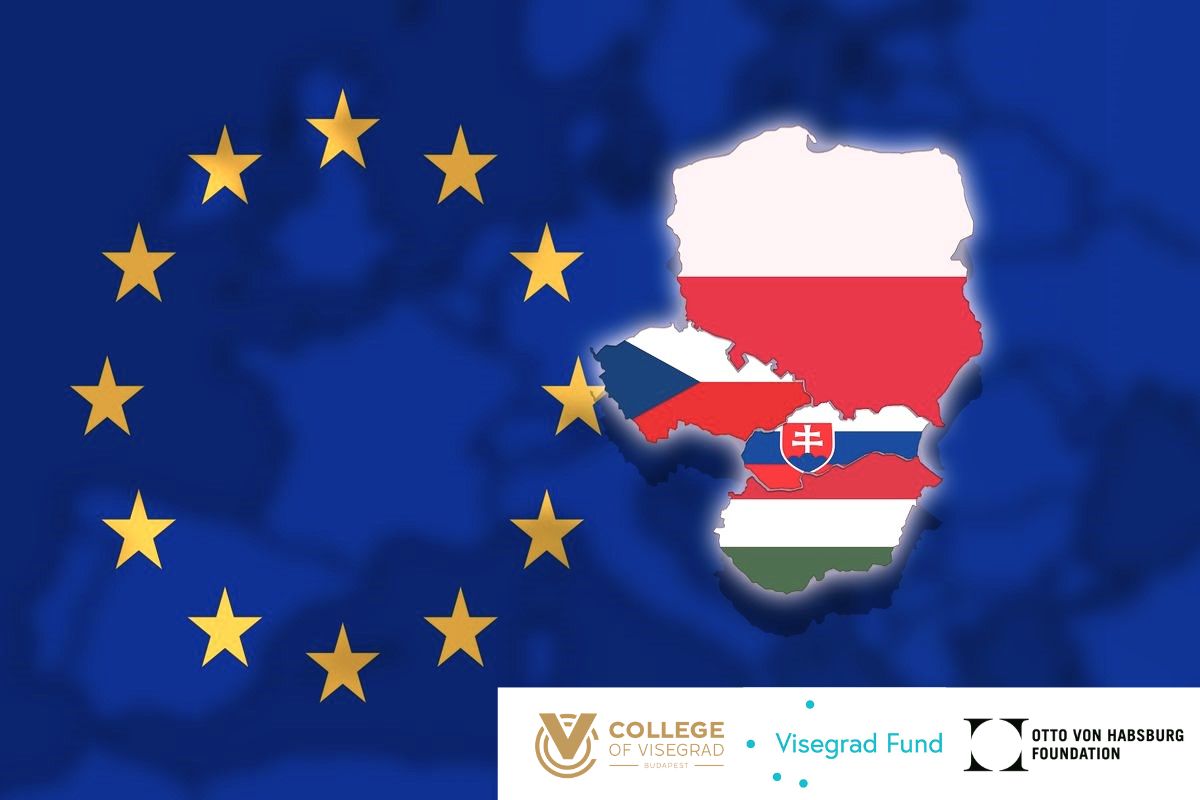PROGRAMMES
V4 33 – EU 20 Visegrad and European Cooperation
The Otto von Habsburg Foundation and the John Lukacs Institute of the Ludovika University of Public Service are organizing a conference to mark the 33rd anniversary of the signing of the Visegrad Declaration and the 20th anniversary of the four countries’ accession to the European Union.
RegistrationVenue
University of Public Service | Ludovika Main Building, Széchenyi Ceremonial Hall,
1083 Budapest, Ludovika tér 2.
Date
Start
2024.04.04.Thursday09:00
End
2024.04.04.Thursday13:00

EU Presidency Talks
The Otto von Habsburg Foundation and the John Lukacs Institute of the University of Public Service are organizing a conference entitled
V4 33 – EU 20
Visegrad and European Cooperation
The history of Visegrad cooperation dates back to 1335, when King Charles Robert of Hungary invited two neighboring monarchs, John of Bohemia and Casimir III of Poland to the Visegrad Palace. The Visegrad Declaration was signed in 1991, and the four countries joined the European Union simultaneously in 2004. Visegrad cooperation is just as important today as it was 700, 33 or 20 years ago, because it can enhance common capacity for assertion of interests, being a regional cooperation between EU Member States. Nevertheless, the past years have not been easy for the Visegrad cooperation either, making it even more important to continue looking at the future, while reflecting on the present.
The conference is also the opening ceremony of the College of Visegrad+ Weekend University, a programme aiming to bring young people from the four countries closer together, thus promoting constructive dialogue.
Programme
| 8.40–9.00 | Registration |
| 9.00–9.05 | Opening address |
| Gergely Prőhle, Programme Director, John Lukacs Institute for Strategy and Politics, Ludovika University of Public Service; Director, Otto von Habsburg Foundation | |
| 9.05–9.15 | Welcoming addresses |
| Gergely Deli, Rector, Ludovika University of Public Service | |
| Béla Bartók: Three Rondos on Slovak Folk Tunes. Second piece – Vivacissimo | |
| Márton Ugrósdy, Deputy State Secretary, Office of the Prime Minister’s Political Director | |
| Frédéric Chopin: Étude op.10, Nr. 12 (‘Revolutionary Etude’) | |
| 9.15–10.00 | Keynote lecture: The History of Central Europe from the Visegrád Congress to the Visegrád Group |
| Petr Mareš, historian, Executive Director of the International Visegrád Fund | |
| Antonín Dvořák: Humoresque No. 7 in G flat major |
|
| 10.00–10.45 | Introductory roundtable: The Visegrad Cooperation on the Edge of the 20th and 21st Century |
| Ladislav Cabada,Vice Rector of the Metropolitan University Prague, Czech Republic |
|
| Iván Bába,Former State Secretary of the Ministry of Foreign Affairs, Hungary |
|
| Marcel Dolobáč, Vice-Dean of the Faculty of Law, Pavol Jozef Šafárik University, Slovak Republic |
|
| Piotr Szwedo, Head of the OKSPO Center for Foreign Law Schools, Jagiellonian University in Kraków, Republic of Poland | |
| Moderator: Gergely Prőhle, Programme Director of the John Lukacs Institute for Strategy and Politics, Ludovika University of Public Service, Hungary |
|
| 10.45–11.00 | Coffee break |
| 11.00–12.30 | Ambassadorial roundtable: Ideas and Political Reality – the Future of the V4 |
| Eva Dvořáková, Ambassador of the Czech Republic to Hungary |
|
| Gabriel Szőke, Head of Unit V4 states from the Ministry of Foreign and European Affairs of the Slovak Republic | |
| Sebastian Kęciek, Ambassador of the Republic of Poland to Hungary |
|
| Krisztina Varju,Deputy State Secretary for the Development of European Relations, Ministry of Foreign Affairs and Trade, Hungary |
|
| Moderator: Liliana Śmiech, Director General for International Affairs and Dénes András Nagy, Programme Coordinator of the College of Visegrád+ |
|
| 12.45–13.45 |
Lunch |
Performing on piano is Máté Dömötör.
The conference will be held in Hungarian and English, simultaneous interpretation will be provided.